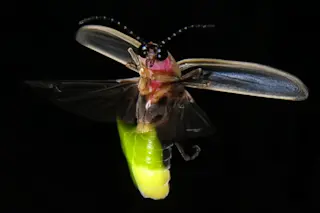What’s the News: We’ve all probably heard the myth, made popular by Disney’s Dumbo, that elephants are afraid of mice. While that idea may not be exactly true
(video), elephants do make sure to avoid another tiny critter: bees. Knowing this, zoologists from the University of Oxford loaded fences in Kenya with beehives
, in hopes of deterring roaming African elephants
from eating or trampling farmers’ crops. Now, two years later, the researchers are reporting in the African Journal of Ecology that the novel barriers are working wondrously
and could be a viable option for protecting African croplands. What’s the Context:
Oxford zoologist Lucy King first learned in 2007 that honeybees—and even just the recorded sound of their buzzing—can scare off African elephants. Although a bee stinger cannot penetrate an elephant’s thick skin, elephants learn to avoid bees because the little insects gravitate toward their eyes and the insides of ...













